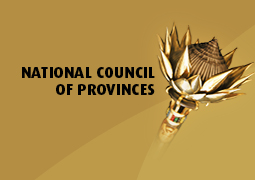
The Parliamentary Budget Office (PBO) has advised Members of Parliament to use their oversight role to prevent illegal and unconstitutional conduct in government and to hold the government accountable on how public money is spent.
Addressing the Inclusive Economic Growth Oversight Summit, Dr Dumisani Jantjies, a Deputy-Director at PBO said the legislature can, through its oversight role, ensure that government’s vision, policies and plans and the associated budget processes are aligned with government’s constitutional obligations and benefits society.
“Through oversight, the legislature has to prevent illegal and unconstitutional conduct on the part of the government, to hold the government accountable on how money is spent and to assess whether government’s budget transforms society and promotes equity and reduces poverty and unemployment,” said Dr Jantjies.
He added that Parliament and the provincial legislatures must protect the rights and liberties of citizens, and detect and prevent abuse. He argued that effective oversight can help make government operations more transparent and increase public trust in the government. This can be done by including public participation and opinion in its oversight role.
The virtual summit was held on the theme: Accelerating Women’s Participation in South Africa’s Economic Reconstruction and Recovery Plan - Maximising the Growth Potential of Provinces, Districts and Localities.
Dr Jantjies also highlighted the importance of the budget system in service delivery. “It is arguably the most important component of public service delivery. The budgeting system is fundamentally part of the process by which a government turns its development vision, policies and plans into implementable programmes and projects, including the delivery of public goods and services. Policies or plans cannot be concretised into deliverable government programmes and projects without the availability of capacity (human, institutional and capital),” he said.
According to the PBO Deputy Director, economic success depends on the ability of government to employ limited resources with maximum effect, and effective management and procurement. He also told the summit that the process of budgeting requires strategic direction provided by the State of the Nation Address, the Medium Term Budget Policy Statement and other policies.
He also spoke of the need to ensure the alignment of policies and plans with budget programmes, as well as alignment of capacity and resources across spheres of government. Dr Jantjies says South Africa has over the years used fiscal policy to improve service delivery in society, including increased access to electricity, improve education attendance across the country, provide social support to poor households.
However, higher unemployment and poverty continue to put pressure in the progress made, with women-headed households in rural areas experiencing disparities in access to services.
The South African economy was already growing more slowly before Covid-19, and the situation has worsened with unemployment and poverty reaching very high levels. The Economic Reconstruction and Recovery Plan proposes measures to address economic and societal challenges, with both social and economic infrastructure spending being one of the expected key drivers also given potential multipliers.
“South Africa’s public spending levels are not matched by high levels quality or efficiency in the services delivered. Preliminary findings on spending reviews, which form part of the budgeting process, indicate that many policies are adopted without considering their total costs and affordability. Multiple institutions share overlapping responsibilities or mandates leading to duplication of work,” said Dr Jantjies.
Also participating in the summit, the Deputy Minister of Trade, Industry and Competition Ms Nomalungelo Gina said Covid-19 revealed South African’s vulnerability to imported pharmaceuticals, ventilators, machinery, PPEs and medical devices. She said this has also highlighted the need to deepen South Africa’s productive base so as to create local jobs, investment and value addition, and to ensure that citizens have access to critical equipment and medication, especially as SA has the ability to produce sophisticated medical and pharmaceuticals.
The Deputy Minister said government has planned programmes to drive industrialisation through localisation, which seeks to achieve the following strategic objectives: reduce the proportion of imported intermediated and finished goods, improve the efficiency of local producers, and develop export competitive sectors that can expand the sales of South African made products on the continent and beyond.
“Developing a local productive base is linked to deepening mutually beneficial linkages with the Southern African Development Corporation and the continent, through cross-border trade that supports industrialisation and infrastructure development.
“South Africa will support the implementation of the African Continental Free Trade Agreement from next year to enable the expansion of South African exports and investment on the continent. Government will review trade agreements and pursue strategic partnerships to secure new markets for South African products”, said Deputy Minister Gina.
By Sakhile Mokoena
26 November 2020

